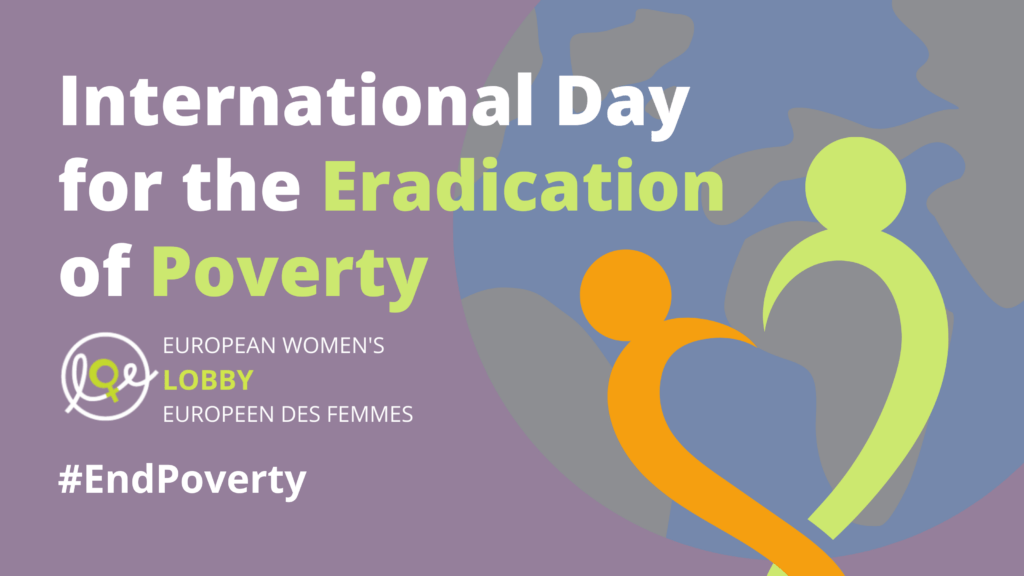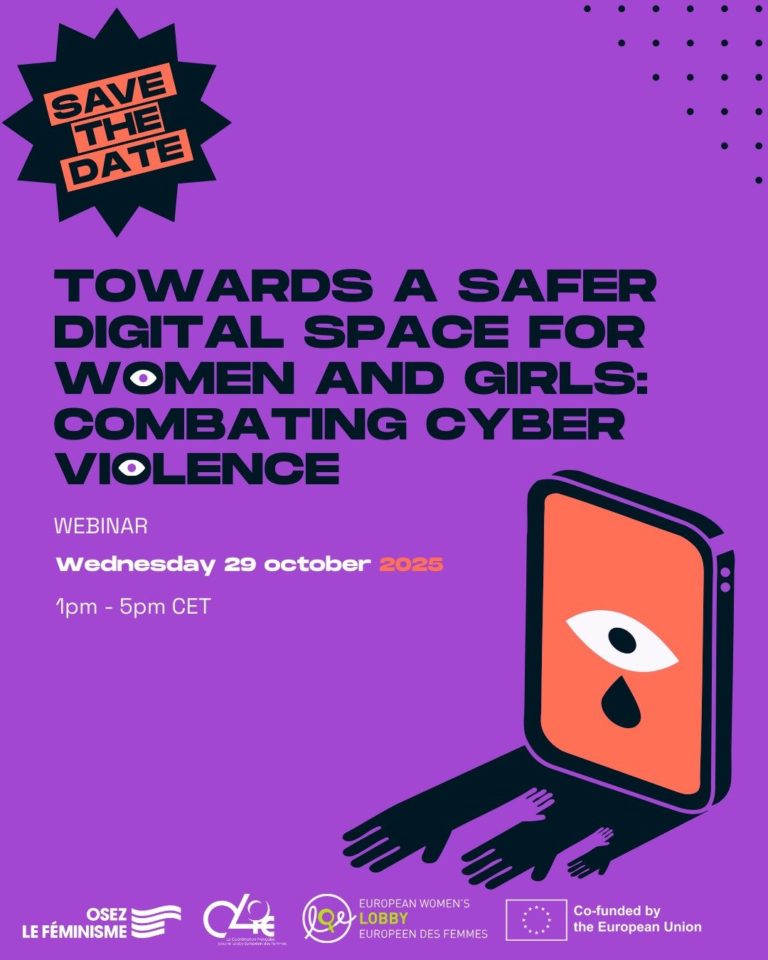[Brussels, 17 October 2022] As the cost of living and inflation keep soaring, women’s poverty is yet again on the rise across Europe. It is urgent to address the structural gendered causes of poverty and social exclusion.
The Feminisation of Poverty
Poverty and social exclusion are intrinsically gendered. According to Eurostat, there are currently 64,6 million women and 57,6 million men living in poverty in the EU. The pervasive nature of gender inequalities and the uncontested disadvantage of women’s position render them more vulnerable than men to poverty. This is because of women’s unequal position on the labour market and in relation to unpaid work, their dependency status in social protection systems and their limited pensions.
While women have always had lesser access to resources, the concept “feminisation of poverty” is increasingly used to express the gendered nature of poverty and social exclusion. However, the full extent of women’s poverty and social exclusion remains hidden. This is due primarily to the lack of data systematically measuring women and men’s situations. Furthermore, income poverty continues to be measured in terms of household earnings, on the assumption that equality is inherent within the household, obscuring gender inequalities within these units. Single mothers, who make up almost 85% of all one-parent families in the EU, are particularly vulnerable as almost half (48%) are at risk of poverty.
Poverty also interlinks with other gendered phenomena, including violence against women and trafficking, as poverty is one of the factors that propel women and girls into prostitution and trafficking for the purposes of sexual exploitation. The economic crisis has exacerbated gender inequalities and disproportionately affected women facing poverty and social exclusion.
The gendered nature of poverty and social exclusion is further compounded by class, ethnic origin, age, sexual orientation, disability and other factors that combine the multiple identities of women. The urban-rural divide also affects the intensity and forms of poverty and social exclusion experienced by women.
Women’s Poverty in Europe
The European Women’s Lobby welcomes the European Parliament’s recent resolution on women’s poverty in Europe. We echo the Parliament’s calls for the EU and the Member States to mainstream gender into all policies and establish adequate measures to guarantee women’s participation in the labour market. Moreover, as Russia’s war against Ukraine triggered an inflation, a spike of the cost of living, and an energy crisis across Europe, we join the calls to protect those living in energy poverty and take into consideration the disproportionate impact of these crises on women, particularly older women and single mothers.
Adequate minimum income
The European Commission also released a proposal to Member States to address poverty and promote active inclusion through modernised minimum income schemes. The proposal outlines how national governments can lift people out of poverty while promoting the labour market integration by improving the adequacy and coverage of income support and by promoting access to inclusive labour markets and essential services. The EWL welcomes this Council Recommendation and joins the call to the Members States’ leaders to ensure their minimum income schemes are up-to-date and relevant to the difficult realities of their citizens.
Further Recommendations to End Poverty
In addition to mainstreaming gender into policies and budgets and guaranteeing a minimum income for all, the European Women’s Lobby calls for further measures to be taken by European and national policy-makers:
- Ambitiously implement the European Child Guarantee and the Pay Transparency Directive, as well as the future Directive on Minimum Wages and Recommendation on Minimum Income; building on the 1992 Recommendation and the Active Inclusion Recommendation endorsed by the EPSCO Council in December 2008.
- Guarantee individualised rights about taxation and social protection entitlements in order to eliminate women’s dependency status.
- Assess and redress reform of social protection systems to progress towards gender equality, especially regarding pension rights.
- Guarantee individualised social protection coverage to self-employed workers and their assisting partners.
- Address and redress gender gaps.
- Revise the household unit measure used to determine income-poverty thresholds that presuppose gender neutrality within.
- Implement indicators in respect of women and poverty as a tool to monitor the impact of broader social, economic and employment policies on women and poverty.
- Address the gender pay gap, including full pay for women during statutory maternity leave and gaps in pension rights.
- Ensure that life-long learning opportunities are available to women that support the development and recognition of broad pre-labour-market skills such as empowerment, capacity building, support systems and basic skills training: reading-writing, language, digital learning including the internet.



